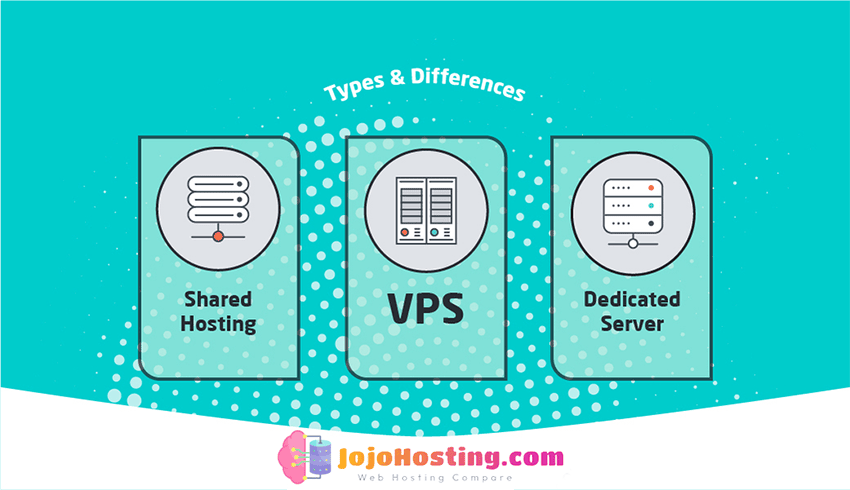Understanding Different Types of Web Hosting: Shared, VPS, Dedicated
Introduction
When it comes to web hosting, not all services are created equal. There are various types of web hosting available, each catering to different needs and budgets. In this guide, we’ll delve into the three primary categories of web hosting: Shared Hosting, Virtual Private Server – VPS Hosting, and Dedicated Server Hosting. By the end of this article, you’ll have a clear understanding of the distinctions between these hosting options and which one is best suited for your specific requirements.
Table of Contents
- Shared Hosting
- Virtual Private Server (VPS) Hosting
- Dedicated Server Hosting
- Choosing the Right Type of Hosting
- Conclusion
1. Shared Hosting
Shared hosting is an entry-level hosting option that’s both affordable and user-friendly. In a shared hosting environment, multiple websites share resources on a single server. This makes it cost-effective, but it also means that the resources, such as CPU, RAM, and bandwidth, are shared among all the sites on that server. Shared hosting is an excellent choice for:
- Personal websites
- Small blogs
- Startups
- Websites with low to moderate traffic
- Budget-conscious individuals or businesses
Pros:
- Cost-effective
- User-friendly
- Requires minimal technical knowledge
Cons:
- Limited resources
- Shared server performance
- Less control over server settings
2. Virtual Private Server (VPS) Hosting
VPS hosting offers a balance between shared hosting and dedicated server hosting. In a VPS environment, a single physical server is divided into multiple virtual servers using virtualization technology. Each VPS operates independently with dedicated resources, offering more control, reliability, and performance. VPS hosting is suitable for:
- Growing websites
- Small to medium-sized businesses
- E-commerce stores
- Websites with moderate to high traffic
Pros:
- More control and customization
- Better performance and reliability
- Dedicated resources
Cons:
- Higher cost compared to shared hosting
- Requires some technical knowledge
3. Dedicated Server Hosting
Dedicated server hosting provides an entire physical server solely for your website. This means you have full control over server resources and settings. It’s the most powerful and flexible hosting option but also the most expensive. Dedicated server hosting is ideal for:
- Large businesses
- High-traffic websites
- Resource-intensive applications
- Websites that demand top security
Pros:
- Full control over the server
- High performance and reliability
- Maximum security
Cons:
- Higher cost
- Requires advanced technical expertise for management
4. Choosing the Right Type of Hosting
The choice of hosting type depends on your website’s needs, budget, and technical expertise. Consider the following factors:
- Website size and traffic: A small personal blog may do well with shared hosting, while a rapidly growing e-commerce site might benefit from VPS or dedicated hosting.
- Technical knowledge: Shared hosting is the most user-friendly, while dedicated hosting requires advanced technical skills for server management.
- Budget: Shared hosting is the most cost-effective, while dedicated hosting is the most expensive.
- Performance and control: If your website demands high performance and full control, VPS or dedicated hosting may be the right choice.
5. Conclusion
Understanding the differences between shared, VPS, and dedicated hosting is crucial for making the right choice. Evaluate your


